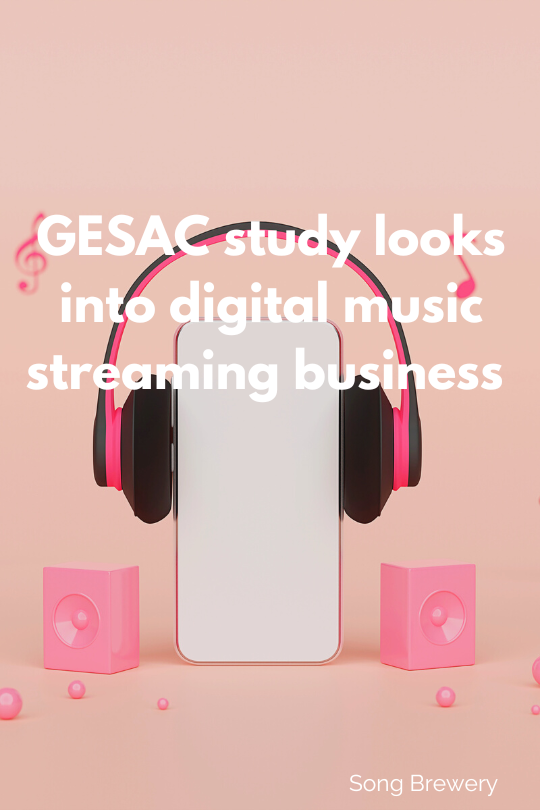Dear songwriting community,
in today´s world of digital data overload, a quick and often effective way to examine the status quo of a given eco-system is to look at certain numbers/stats. I am excited to point towards a recent EU wide study examining the structures and systems that determine the compensation rates for various industry players within the global music streaming markets.
As a matter of fact, in the music industry a variety of “cashflow generating mechanisms” are currently in place; most of which do not serve all relevant participants equally and therefore require revisions, if we want to sustain the quality and the value of music.
With the current focus on digital streaming platforms as second biggest income stream for musicians (Streaming constituting 29,3% of total income shares in 2021) next to TV and Radio placements, it is worth looking into the systems that dictate who earns what.
Unsurprisingly, the recent “Study on the place and role of authors and composers in the European music streaming market” which was commissioned by GESAC and conducted by music journalist Emmanuel Legrand found that the clear monetary winners are the platform operators and the major labels with their enormous market shares and gatekeeper positions. In March 2021, 57.000 artists (out of 8 Million artists in total) accounted for 90 % of the monthly streams on Spotify whilst 93 % of Spotify artists do not even exceed more than 1000 monthly listeners on the same platform. GESAC decided to look deeper into the suspected systemic pitfalls and came to the conclusion that both streaming fraud and algorithmic reasons are amongst the root causes.
When looking at the pie of payments distributed to various industry players, songwriters and publishers (representing the song authors) are the ones that receive the least amount of compensation – roundabout 15%, while the streaming platforms keep 30% of the pie and labels with their artists take 55% into their accounts.
In my personal opinion, there is nothing fundamentally wrong with labels taking a large portion of the pie, as long as they also take risks and invest an allocated amount of money into artist development and marketing. If they operate under that premise, they obviously will earn more than other industry players that invest little to no money. You reap what you sow. And yet, there have to be more/alternative opportunities for people on a budget as well. If we operate on a capital power system only, the art will suffer. Quality music should not be denied a listenership because of a lack of capital. Moreover, authors (the ones at the low end in the food chain) in particular need to be compensated more fairly, if we want a healthy, sustainable music community.
The authors of the study view the low monthly subscription prices as one relevant factor to adjust within the next years. But moreover, unethical practices, such as streaming fraud and the “preference” of royalty free or royalty reduced playlist placements need to be addressed as well.
With this said, I urge all you creators to take a look at the study and share it with your community. Every paradigm change starts with a crucial number of voices getting loud! So, to quote one of my favorite songwriters/authors, Linda Perry: “And we scream from the top of our lungs, what´s going on?”
Link to Study: https://authorsocieties.eu/the-place-and-role-of-authors-and-composers-in-the-european-music-streaming-market/
Follow us on Instagram


